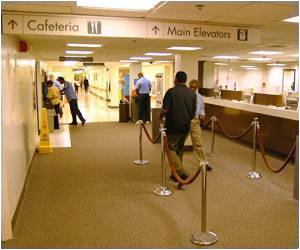A study has reported rise in use of electronic medical records (EMRs) by primary care physicians in the United States from 46% in 2009 to 69% in 2012.

The survey of nearly 8,500 primary care physicians in Australia, Canada, France, Germany, the Netherlands, New Zealand, Norway, Switzerland, the United Kingdom, and the United States, finds that communication and teamwork across the health system is a challenge in all countries. In each, only a minority of primary care doctors reported always receiving timely information from specialist physicians after referring patients to them; in the U.S., just 11 percent of physicians said they had such information available when it was needed. And from one-third to more than half of doctors across countries said they are not always notified when their patients leave the hospital.
In the study, "A Survey of Primary Care Doctors in Ten Countries Shows Progress in the Use of Health Information Technology, Less in Other Areas," the U.S. stands out for having the lowest rates of after-hours care: one-third (34%) of U.S. physicians reported they provided options for their patients to receive after-hours care, compared to about 90 percent or more in the U.K (95%), the Netherlands (94%), New Zealand (90%), and Germany (89%).
"The U.S. spends far more on medical care than the other countries we surveyed, yet our doctors are telling us their patients can't afford care, they don't always have the patient information they need, they spend too much time dealing with insurance companies, and we need major change," said Commonwealth Fund senior vice president Cathy Schoen, lead author of the study. "The insurance expansions under the Affordable Care Act will make care more affordable—but we also need to simplify insurance to free up physicians to provide timely access to high-quality care for their patients."
Use of Health Information TechnologyAccording to the survey, while the U.S. and Canada have made improvements in health information technology use, both countries continue to lag behind the leaders in EMR use and the range of functions supported by practice systems. In fact, just 27 percent of U.S. physicians and 10 percent of Canadian practices indicated their systems have multi-functional capacity, with the ability to: generate patient information, such as medication lists; manage patient registries, such as seeing which patients are overdue for care; order prescriptions or diagnostic tests electronically; or provide decision support, such as alerts about drug interactions. In contrast, 68 percent of U.K. practices and 59 to 60 percent of New Zealand and Australian practices reported having such multi-functional capacity.
Providing patients with electronic access appears to be spreading. The survey found that about a third of U.S. doctors allow patients to request prescription refills online (36%) or e-mail a medical question (34%). Physicians in other countries have also expanded such electronic access: for example, two-thirds (68%) of Swiss doctors provide e-mail access, and more than half of Dutch (63%), Norwegian (53%), and U.K. (56%) doctors said their patients can request prescription refills electronically.
Advertisement
"The substantial increase in U.S doctors' use of electronic medical record systems reflects the incentives and national investment included in the 2009 economic stimulus legislation," said Commonwealth Fund president Karen Davis. "As we look to the future, we hope to see similar progress as health reform provisions take hold, including patient-centered medical homes and health care systems that foster teamwork and coordination. With improvements in these areas, we will be able to improve patient outcomes and experiences, and make a positive difference for physicians."
Advertisement
Additional Survey Findings
- Primary care physicians' reports about their patients' access to specialists varied widely: 10 percent of Swiss doctors, compared to three-fourths of Canadian and New Zealand doctors, said their patients often face long waits to see a specialist. Twenty-eight percent of U.S. doctors—the same percentage of U.K. doctors—also voiced this concern.
- To provide incentives for quality improvement, many of the countries have been investing in making information available on physician performance. U.K. doctors stand out for getting feedback on their performance: 84 percent of U.K. primary care practices reported they routinely receive and review data on clinical outcomes, 82 percent receive data on hospital admissions and emergency room use, and 78 percent have comparative data available—by far the highest rates in the survey. U.S. primary care doctors are in the middle of the range for having performance information on clinical outcomes (47%) and data for comparing themselves with other practices (34%).
- Within the U.S., physicians who reported that they spend a lot of time on insurance restrictions or that their patients have access problems were the most likely to call for major change and were the most negative about practicing medicine.
The authors of the study observe that physician experiences underscore the importance of national policies, including those concerning health insurance design, investment in information systems, and the resources necessary to support primary care practices. "Although U.S. health information technology adoption has increased, the study points to the need for intensified efforts to link practice information systems to enable communication and collaboration across care sites," they write. With the redesign of primary care central to U.S. efforts to improve health outcomes and care experiences while reducing costs, they conclude that "listening to doctors on the front lines of primary care can help identify gaps and target reforms."
Source-Eurekalert









